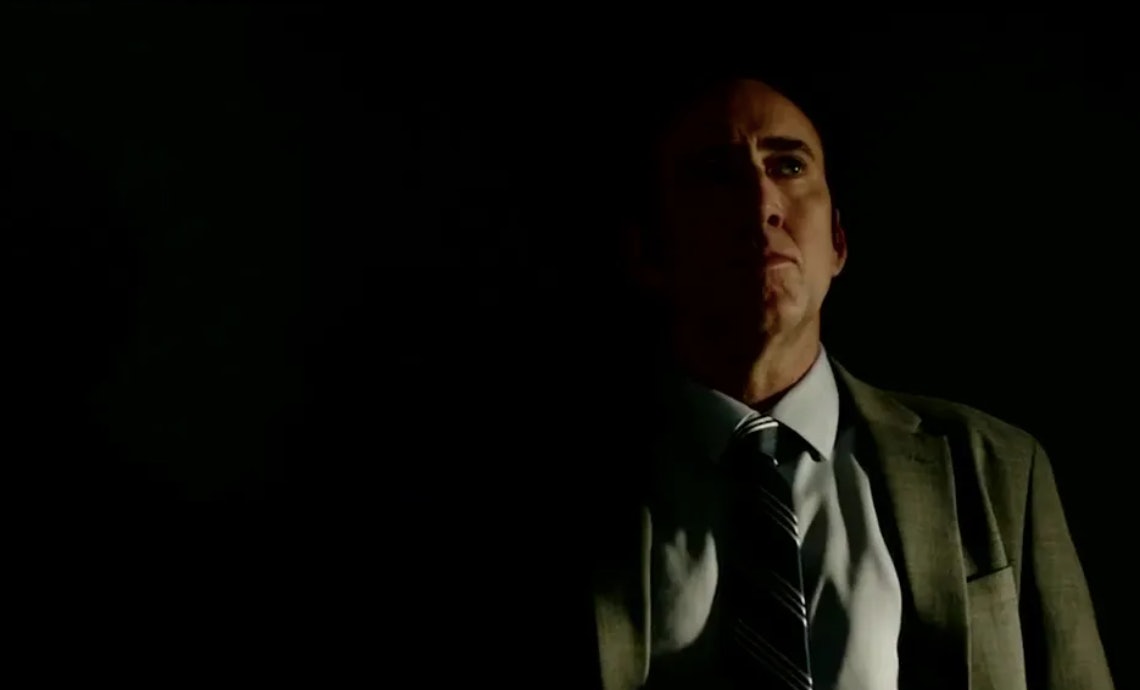
When a movie character suggests taking a shortcut, you know nothing good is about to happen – especially when that shortcut is through dark woods at night. So it’s no surprise Teena Maguire and her daughter Bethie end up stumbling into the worst nightmare of their lives.
Trigger warning: The plotlines described in this article, particularly those regarding sexual assault, may make some readers uncomfortable.
Five years ago, Nicolas Cage starred in Vengeance: A Love Story, an adaptation of the Joyce Carol Oates novella Rape: A Love Story. Cage plays John Dromoor, a police officer investigating a case involving the gang rape of single mother Teena Maguire, which occurred in front of her 12-year-old daughter Bethie. After the attackers get off scot-free, John attempts to get justice by any means necessary.
If you recognized this movie as an adaptation of Oates’ novella, you probably know what to expect. But if you weren’t aware (as I initially was not, given the title change), then it might be a shock. But honestly, regardless of whether or not you’re prepared, the graphic rape scene within the first 30 minutes is very upsetting to watch and very difficult to get through. Personally, I had to skip ahead a few minutes — something I rarely do — because it really is that sickening. Another warning for anyone particularly upset by animal cruelty, there is a later scene showing an especially cruel killing of a beloved pet cat.
Despite having first billing and being the sole actor on the movie poster, Vengeance really is not about Nicolas Cage. This is Bethie and Teena Maguire’s story. Detective John Dromoor is here to support the traumatized mother and daughter who are trying to get justice and recover physically and mentally from horrific trauma while enduring unbearable cruelty from the residents of their town. While I haven’t read Oates’ novella, from what I understand, Teena and Bethie are the story's true focus.
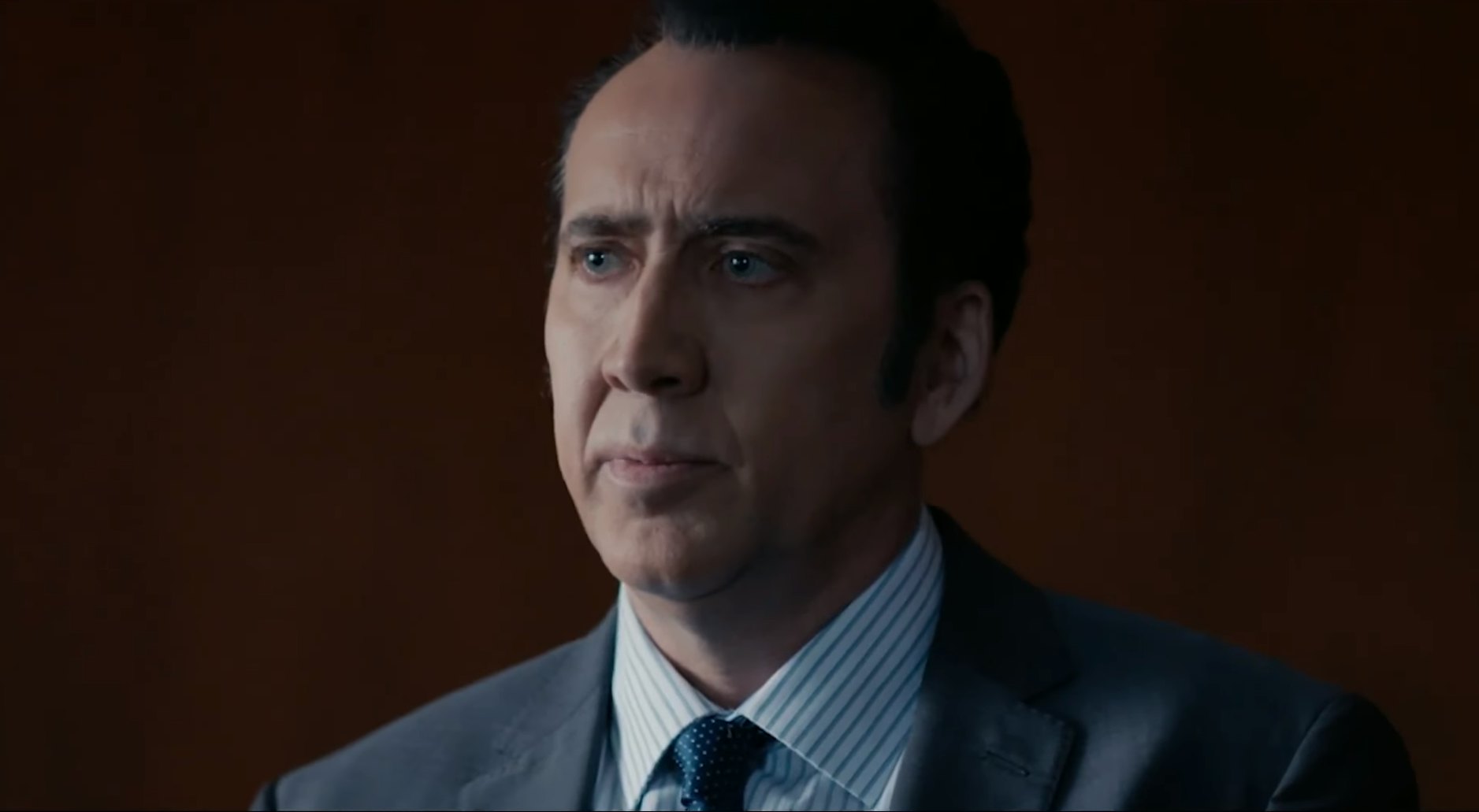
Cage is not at his peak Nicolas Cage here. There are no over-the-top facial expressions, strange visuals, weird quotes or quirks, or classic-Cage screaming. Granted, given the film’s tone, it would have been inappropriate to have any of that. Instead, Cage is going for stoic yet pained, but most of the time, he just ends up looking vacant and empty.
This is, unfortunately, due to the lack of development his character receives. We’re simply told that Dromoor is a Gulf War veteran, a widower, and an alcoholic. There’s no character exploration beyond what is explicitly stated. That’s not great when this is the character that appears on all the movie posters. He isn’t bad in the role, but you get the feeling that anyone could have played the part, while Cage is at his best when he plays more eccentric and exuberant characters where he can show off his full range.
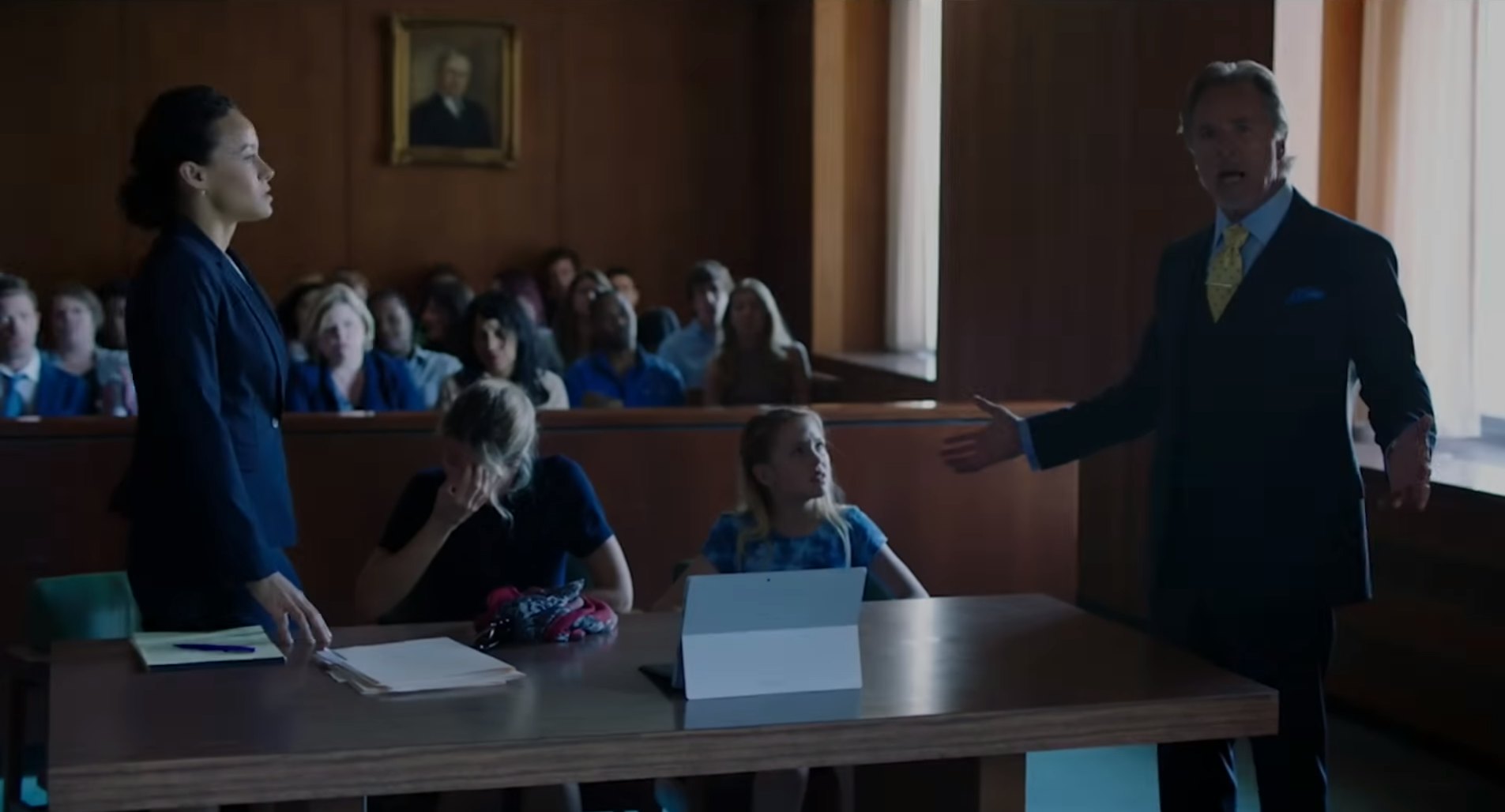
Bethie and Teena want their day in court and to make sure the four rapists are punished, but it seems like most of the town is against them, despite a mountain of evidence. During the hearing, the defense attorney frames Teena as a promiscuous and unfit mother who consented to sex with these men in front of her young daughter, making the men innocent. The courtroom starts cheering.
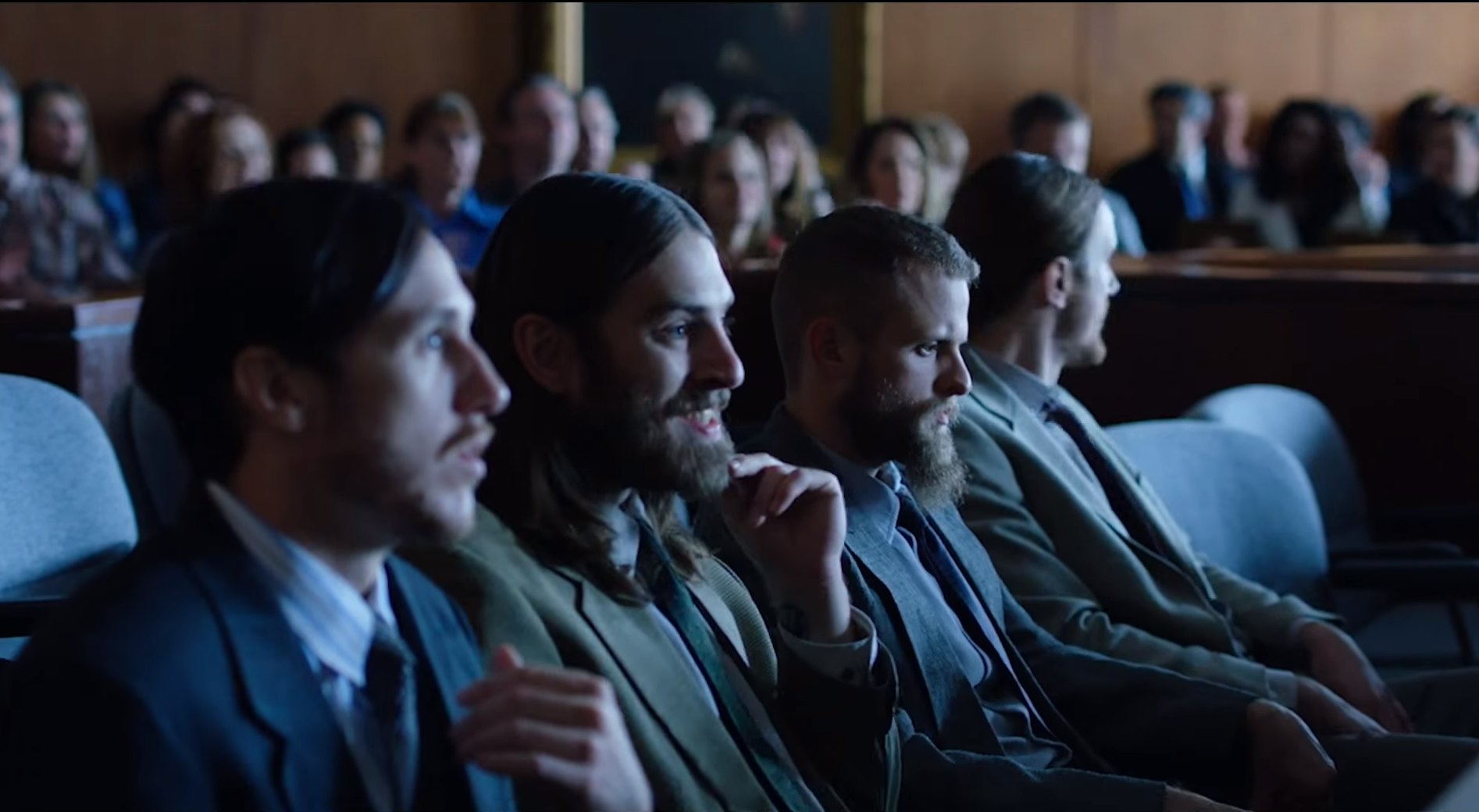
It’s never made clear why the town is behind these men. They aren’t prominent or respected citizens, nor are they clean-cut college students. They all look and act exactly like the scum of the earth that they are. No one can legitimately make the old (unfortunate) argument that these are upstanding young men who made a mistake and shouldn’t have their bright futures ruined. These guys have no depth. They’re just unadulteratedly evil.
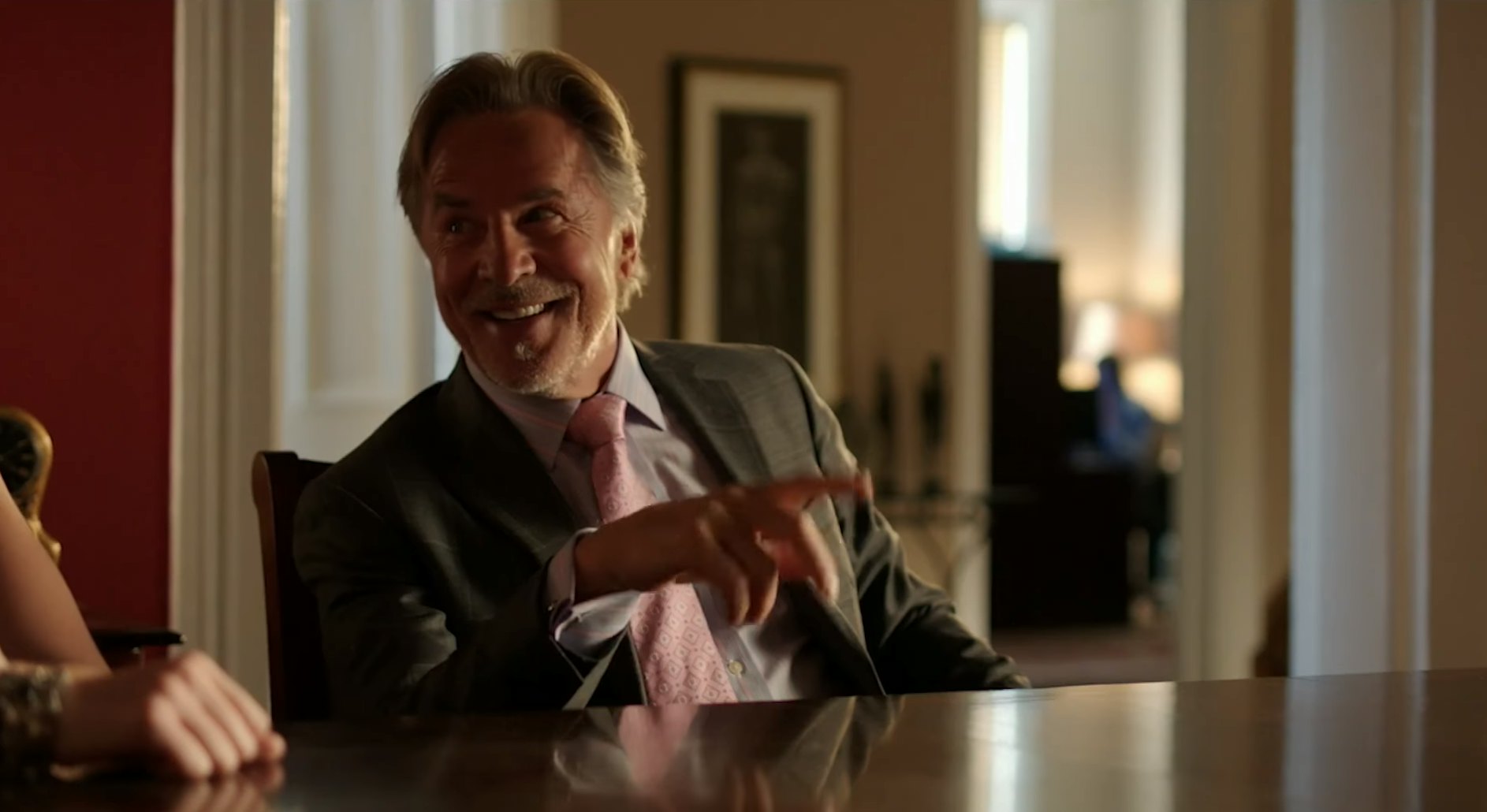
Also standing in the way is an extremely biased judge. The judge makes absolutely no pretense about how much he favors the smarmy, hot-shot defense attorney played by Don Johnson, who sports fashionable sunglasses, a full head of luxurious salt-and-pepper hair, and rides a motorcycle. The judge is perfectly eager to shake Johnson’s hand and courteously excuse him when he arrives late to the hearing.
Meanwhile, the judge snubs Teena’s attorney — an intelligent young Black woman who wants justice. He demeans Teena by forcing her to remove her sunglasses in court, despite a head injury making her highly sensitive to light (“Can’t she just squint?”). While never explicitly stated, there’s definitely underlying sexism (and likely racism regarding Teena’s attorney) in the judge’s attitude. All in all, it’s incredibly frustrating to watch.
According to both the judge and Don Johnson’s lawyer, the jury is totally willing to believe that Teena is an awful mother who would willingly have sex with multiple men in front of her daughter because she has a flirtatious personality and wears revealing outfits. This is despite DNA evidence, a positive identification by Bethie, hospital reports, and very blatant injuries sustained by Teena.
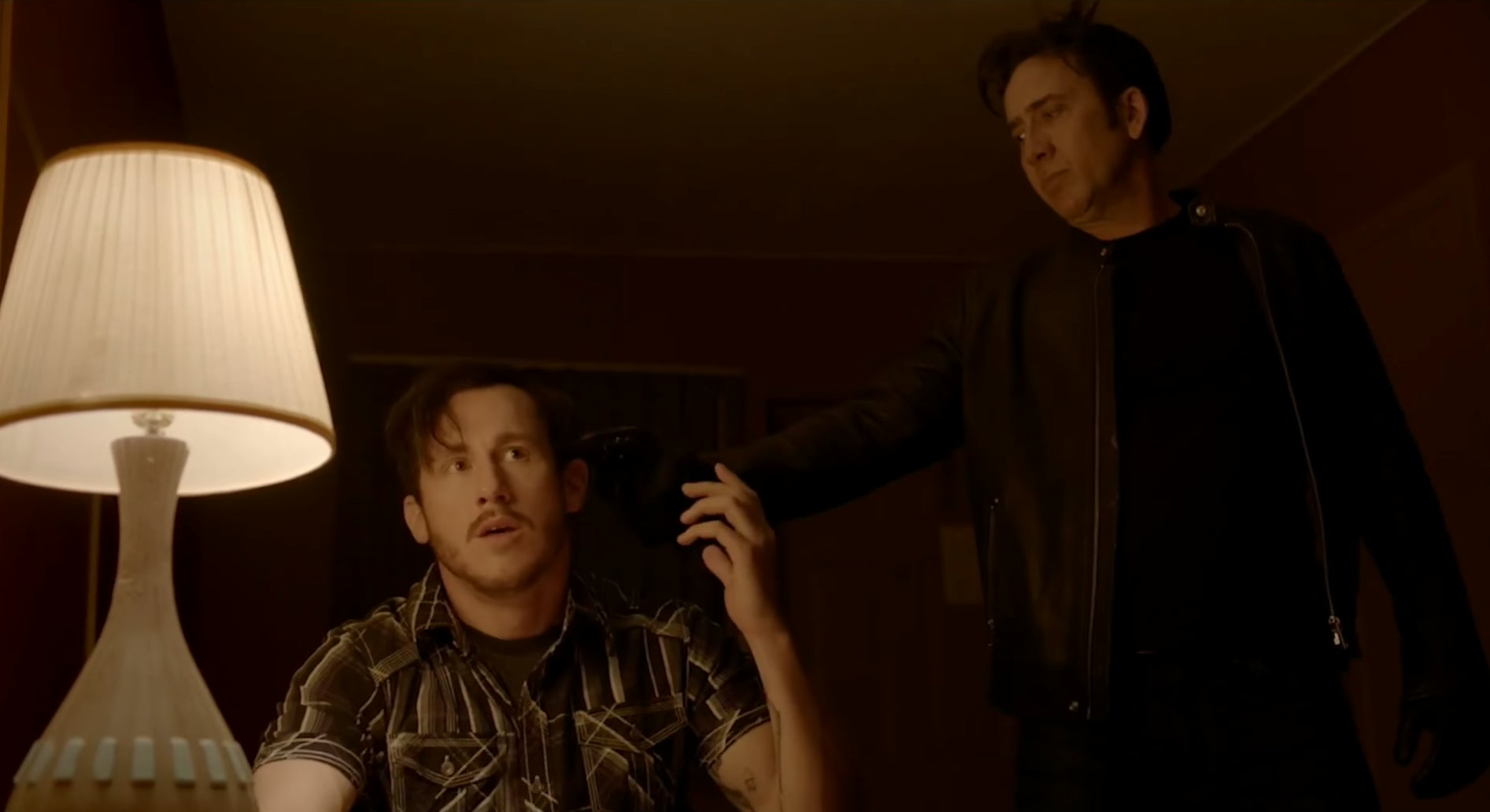
Admittedly, it is satisfying when Cage decides to just straight-up murder all of the perpetrators, sparing the mentally fragile Teena a trial that was not looking favorable for her. These guys are portrayed as absolute monsters, so you can’t help but want to see them die. But the ending isn’t enough to make up for the rest of the movie.
While Vengeance isn’t necessarily a bad film, it just feels underdeveloped as a story, and it seems to boil down to being just another variation on the rape/revenge movie.







